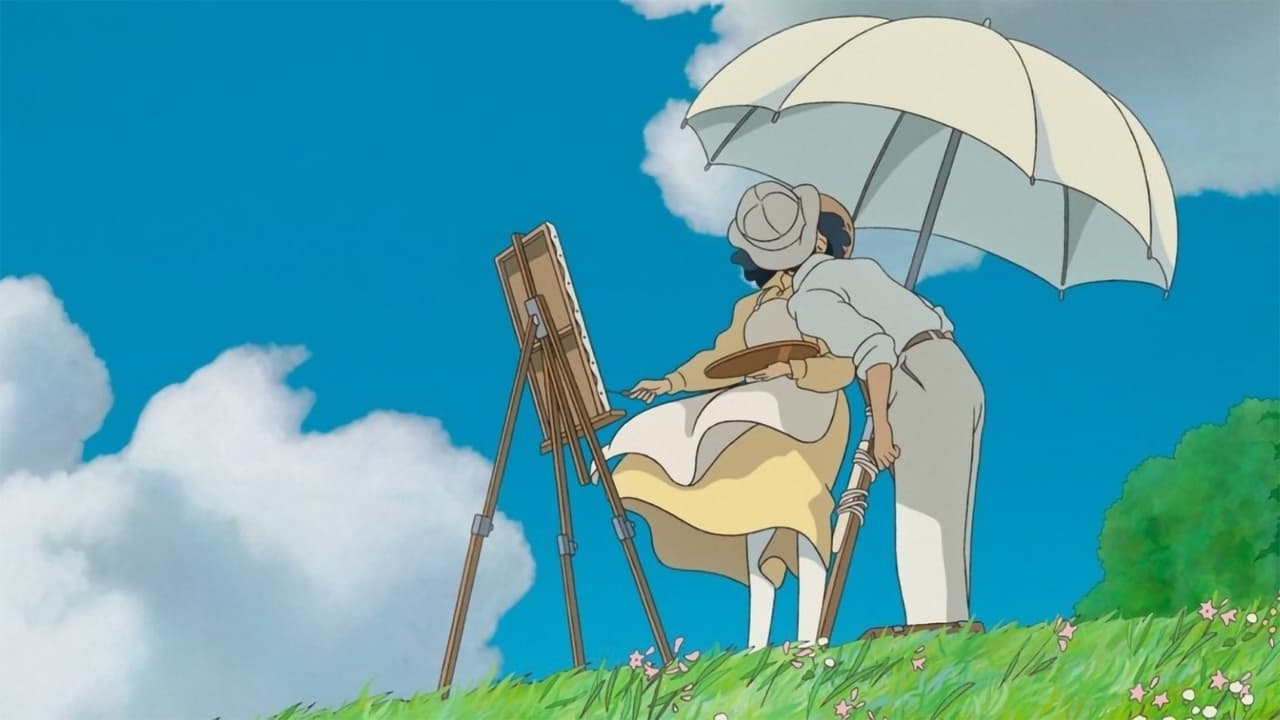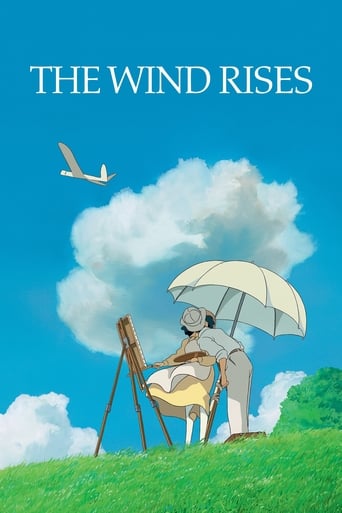



Boring
I have absolutely never seen anything like this movie before. You have to see this movie.
View MoreEach character in this movie — down to the smallest one — is an individual rather than a type, prone to spontaneous changes of mood and sometimes amusing outbursts of pettiness or ill humor.
View MoreOk... Let's be honest. It cannot be the best movie but is quite enjoyable. The movie has the potential to develop a great plot for future movies
View MoreThe brand is so strong with Ghibli, and the name of Miyazaki generally means great work – even to something without any real knowledge or interest in Japanese animation per se; so there is an expectation that each film will soar. With The Wind Rises, the critics all seemed to suggest it was an instant classic, but mostly I tried to avoid reviews and hype, and did not watch in a rush. The plot follows the key moments in the life of Jiro Horikoshi, who designed Japanese fighter planes during World War II. We join him as a student and follow his career through romance and flights of fancy which inspire his work.Visually it is as pretty as ever, with the real life providing plenty of detail, and the dream sequences having lots of energy and creativity. However, these aspects contrast quite badly with the majority of the content, which is interesting – but no more than this. The narrative plays out in a very functional way. The purpose of the dream sequences seem to be almost an attempt to liven up the story, and the romance elements seem exaggerated to introduce a heart that isn't in the majority of the telling. There are efforts at color and humor, and most of it does add to the film in a way that makes it more lively than it may otherwise have been. Problem is that the core of the film isn't this way, either in the detail or the character.Jiro is mostly a dull character, particularly after the youthful spirit of the first third settles down. I did not connect with him, his work, or his sacrifice – and the final scenes did nothing for me as a result. The content of the film also seems off, because it is not just one of invention and passion, but rather the spirit of the war effort is behind. There are some mentions to this, but that inherent darkness only seems to be dealt with in mentions rather than what it really deserved. I guess this is a balancing act and an awkward aspect – I'm not sure how best it could have been handled beyond the muted presence, but it struck me as oddly present but not present throughout.Worth a look for the basic story and the animation, but mostly it is a functional piece which surprised me by lacking heart and not drawing me in emotionally.
View More"The Wind Rises" is a highly fictionalized version of the early years of aeronautical engineers Jiro Hirokoshi and Tatsuo Hori...with a very strong emphasis on Jiro. The fact Hiyao Miyazaki would make such a film isn't all that surprising, since he seemed to have a real sentimental attitude towards early airplanes in several of his films (such as "Porco Rosso"). However, I was a bit surprised when I learned about the film since the planes these two men made for Mitsubishi were important components of the extremely nationalistic Japanese military of the 1930s and 40s...an era many would probably choose to forget.Not surprisingly, this is a Miyazaki film that is not at all intended for children. In fact, I wouldn't bother showing it to your younger audiences...they'd be bored. Plus some parents would object to all the smoking and cursing...and there's not a single Totoro or flying witch to be seen! As for me, I understand that many Japanese animated films are NOT intended for kids and that isn't a bad thing at all. In this case, Studio Ghibli managed to make one of the loveliest of all their films in "The Wind Rises". It is extremely touching in parts, especially when dealing with Jiro's fated romance. In fact, the film practically screams quality throughout and it's not at all surprising that it was nominated for the Best Animated Feature Oscar. Well worth seeing.Incidentally, Jiro's infamous Japanese Zero was interesting because by the end of the war almost every single one of these aircraft had been destroyed...and I wonder how he felt about this. Ironically, one of the few Zeros to survive did so because it was captured and taken to the States for testing and evaluation.
View More...And the story is so excellent it could have been a live action film Studio Ghibli at it's best and animation at it's best. how did the Oscars pass up on this for the win!? Plus I'm showing favoritism as the movie is about one of my favorite subjects, Aviation.Somewhere in-between The Great War and World War II lies Jiro, a young Japanese man who becomes a fan of an Italian airplane designer and shares his dream (Literately in the sense of the movie) of designing air crafts, and the movie goes through his process, as well as him finding love.I don't know if this is a true story or how inspired by true events the movie is, but the Zero fighter that Jiro designs was used by the Japanese in World War 2. I do know the title comes form a poem. The Wind Rises, what a perfect title for a movie about Aviation.Anyway, The Wind Rises is like a painting in movement. the complete extension of what I want from animation. There was one scene in which Japan suffered an earthquake and with animation, they intensified the scene making it look like the ground just had a hiccup and caused all this chaos and destruction. it was brilliant.So I'm sorry, as good as Frozen is I think the Oscars made the wrong choice in not given the Wind Rises the trophy.
View More*Warning- Spoilers* Where to start. The seemingly effortless animation, the trademark Studio Ghibli expressions and style, the side characters (i.e. Jiro's boss, Mr. Kurokawa) so full of life, the background characters who genuinely seem to have personalities of their own, the juxtaposition of classical music with the destruction of Japan, the character study of an altruistic, idealistic man who sees his efforts ultimately go up in flames- The Wind Rises doesn't fit neatly in the typical three act structure of most films, yet despite this lack of the usual narrative arc, it's completely engrossing from start to finish. Though I would still rank Spirited Away as Miyazaki's crowning achievement, this film is, in a way, in a different category from Spirited Away, and many of the other Ghibli movies, for that matter. It lacks any blatantly fantastical character and because of this deals with mature themes such as regret and moral ambiguity in a way that feels much more piercing.That final scene is an unbelievable mix of tragedy and optimism. It's implied that Japan is in ruins thanks to Jiro's work, his wife has succumbed to tuberculosis, and the 10 best years of Jiro's life are behind him. Yet "live," Jiro's deceased wife urges him. And so he does, joining his Italian hero for drinks.
View More